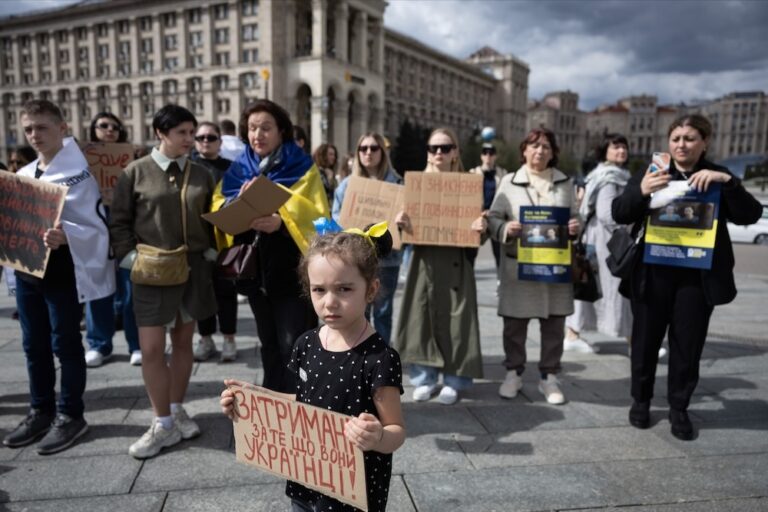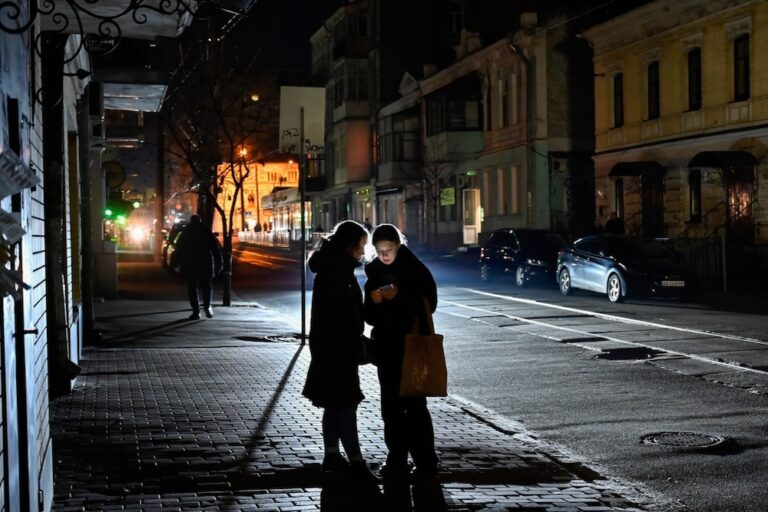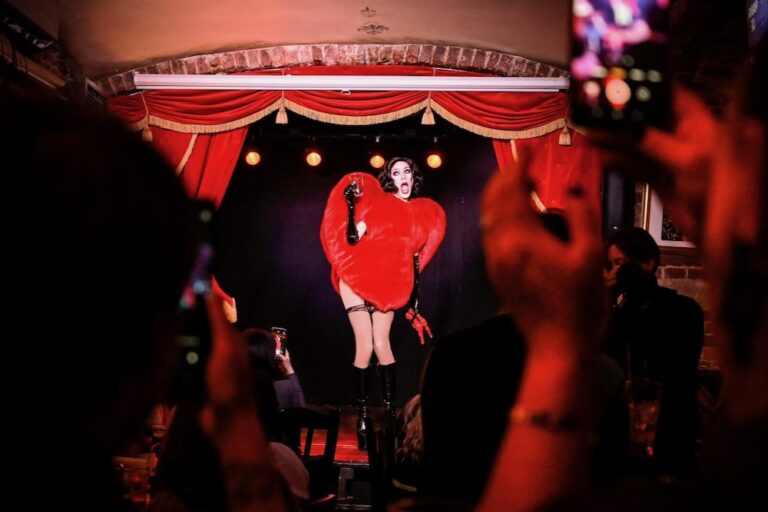Riot police detained more than 300 demonstrators at a major rally in Moscow to protest what they contend are fraudulent parliamentary election results.
(Human Rights Watch/IFEX) – Moscow, December 7, 2011 – Russian authorities should respect the right to freedom of assembly and promptly release everyone arrested at peaceful protests on December 5, 2011, who did not engage in acts of violence, Human Rights Watch said today.
Russian riot police detained over 300 demonstrators at a major rally in Moscow to protest what they contend are fraudulent parliamentary election results. Most remain in custody awaiting court hearings; three have already been sentenced to 15 days of administrative arrest.
“The protesters have a right to express their concerns about the way the elections were carried out.” said Hugh Williamson, Europe and Central Asia director at Human Rights Watch.
“Arresting peaceful protesters and imposing jail time hardly speaks well for the government and is unacceptable in a democratic society.” The parliamentary election on December 4 was marred and criticized by international observers.
Media reports variously estimate that between 5,000 and 10,000 demonstrators gathered in the Chistye Prudy area of central Moscow. The demonstration, organized by political opposition and civil society activists, was sanctioned by the Moscow authorities. However, the organizers had told the authorities that they anticipated crowds of up to 500 people. The arrival of thousands of protesters was a surprise to the organizers as well as to the police.
Witnesses interviewed by Human Rights Watch and media reports said the protesters were overwhelmingly peaceful. Many were holding placards criticizing the election results and chanting opposition slogans.
At approximately 7:30 p.m., the protesters started moving along the main street leading toward the Central Electoral Building. The riot police responded by dispersing the spontaneous march, sometimes violently, detaining people at random and hauling them into waiting police vans. By 11 p.m. the Chistye Prudy area, as well as areas around the Kremlin and the State Duma had been blocked off by riot police.
According to the Internal Affairs Ministry, approximately 300 people, including opposition leaders, journalists, and well known activists, were detained. Journalists later reported that they were detained even when they showed their press cards. The detainees were taken to at least 11 police precincts in Moscow.
Human Rights Watch interviewed several activists who participated in the protest at Chistye Prudy. One said that several of her friends who had been arrested called her from the Yakimanka police station and told her they were being accused of inciting vandalism. The detainees were mainly charged with refusing to obey police orders and inciting violence. Other people interviewed and media reports said most of the detainees had to spend the night in the police stations. Media reports also said that the police did not allow lawyers to visit the detainees and refused to accept parcels with water and food for them.
Administrative trials started on the morning of December 6. Ilya Yashin, a member of the opposition party PARNAS, was sentenced to 15 days of administrative detention for disobeying police orders “by waving his hands in the air and refusing to leave,” according to the judge. The judge said he was handing down a particularly severe sentence because Yashin’s actions demonstrated a “high level of threat to society.” Two more opposition leaders, Alexei Navalny and Egor Zhgun, were found guilty on the same charges and also sentenced to 15 days of detention.
Post-election protests also took place in other Russian cities. Approximately 1,000 people were detained after riot police violently dispersed a rally in St. Petersburg on the night of December 5. Police officers arrested not only protesters but also passers-by, media reports said.
The right of peaceful assembly is guaranteed by the European Convention on Human Rights (ECHR) as well as the International Covenant on Civil and Political Rights (ICCPR), to which Russia is a party. Article 11 of the ECHR states that, “Everyone has the right to freedom of peaceful assembly and to freedom of association with others…” Article 21 of the ICCPR states that no restrictions may be placed on the exercise of this right other than those imposed in conformity with the law and that are necessary in a democratic society in the interests of national security or public safety, public order, the protection of public health or morals, or the protection of the rights and freedoms of others.
The Russian constitution also guarantees the right to freedom of assembly, in article 31, which states, “Citizens of the Russian Federation shall have the right to gather peacefully, without weapons, and to hold meetings, rallies, demonstrations, marches and pickets.”
As the European Court of Human Rights has made clear, the freedom to take part in a peaceful assembly is of such importance that a person cannot be subjected to a sanction – even one at the lower end of the scale of disciplinary penalties – for participation in a demonstration that has not been prohibited, so long as this person does not himself commit any reprehensible act on such an occasion.
The court has also emphasized that an unlawful situation does not justify an infringement of freedom of assembly. The court said that in instances in which demonstrators do not engage in acts of violence, it is important for the public authorities to show a certain degree of tolerance toward peaceful gatherings if freedom of assembly is not to be deprived of all substance.
“There is no question that the number of protesters came as a surprise to the authorities and the police need to uphold law and order,” Williamson said. “But that’s no reason to use excessive force against people who were just expressing dissatisfaction, to deny detainees their due process rights, or to punish them with lengthy jail sentences.”


